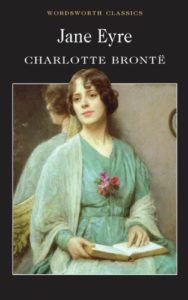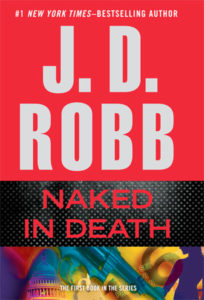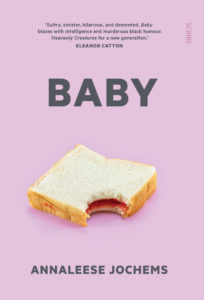Every good romantic thriller is energized by a third wheel, an unwanted person, an irritant. For a compelling story, something has to squeak.
The best thing I’ve read about jealousy is the title essay in Anne Carson’s Decreation. She writes, “A jealous lover covets a certain location at the centre of her beloved’s affection only to find it occupied by someone else. If jealousy were a dance it would be a pattern of placement and displacement. Its emotional focus is unstable. Jealousy is a dance in which everyone moves.”
My novel Baby is about Cynthia, a spoiled idealist who flees the civilized world to live alone with her beautiful gym instructor Anahera in a small cabin boat. Their love could be utopian, except that other people keep coming along and interrupting it. First there’s Cynthia’s dog and his seasickness. Then there’s an adventure-hungry teenage boy. Finally, a muscular adult man with a fishing rod. I loved writing these interrupters. They helped to simultaneously sustain and humiliate Cynthia’s fantasy of perfect love between herself and Anahera. Further, they provided opportunities for Cynthia to make big, dramatic sacrifices for her love.
The most obvious horror of the unwanted third person is their inevitable desire to take your place in the couple, and make you the outsider. The stronger, deeper horror however—the horror with enough power to animate a whole novel—is the sense that the third person is in some way constitutive of the existing couple at a fundamental level. There’s a sense that if the third person disappeared, the couple would dissolve with them.
What if on finally reaching that coveted location at the center of our beloved’s affection we found it not occupied by anyone else, but empty?

Strangers on a Train, by Patricia Highsmith
Guy is desperate to divorce his cheating wife Miriam and marry Anne, the woman of his dreams. Then he meets Bruno, who breathlessly suggests that he and Guy should “exchange murders.” Bruno will kill Guy’s wife; Guy will kill Bruno’s father. All their problems will be solved by two apparently motiveless crimes, and they’ll never see each other again.
Shortly after their meeting Miriam is found dead, and Guy is free to marry Anne. Except he isn’t: he can’t escape Bruno.

Jane Eyre, by Charlotte Bronte
Plain, poor Jane has nothing to offer the rich and virile Rochester but her virtue. He says that’s worth a lot. But how can his love for Jane be true when the beautiful and wealthy Blanche Ingram is fluttering about, hankering for his affections? To readers it’s obvious that Rochester has something to hide. He’s too perfect. How can Jane’s story, which has been one of deprivation, suddenly become a fairy tale of love and luxury without someone having to pay the price?
The thing that’s most intriguing to me about Jane Eyre is Charlotte Brontë. How aware was she of the subtext of her novel? This puzzle is a big pleasure with all fiction, but because Jane Eyre is such a surreal, dreamlike story and told in such plain, reasonable style, it becomes particularly obsessive. Surely it’s no accident that the handsome Rochester needs to lose his vision before Jane can trust him? Or that another woman has to suffer before the long-suffering Jane’s big romantic love can be true?

As She Climbed Across the Table, by Jonathan Lethem
Phillip’s girlfriend Alice and her scientist colleagues replicate The Big Bang in their lab, creating a void. The void, Lack, accepts some objects presented to it, swallowing them, and spits others back out. Its tastes are arbitrary, mysterious—and the mystery of Lack seduces Alice, stealing her away from Phillip.
There are too many twists in this novel to hint at, but the big question is: Can (the slightly mediocre) Phillip save Alice? Can he make his girlfriend choose him over the void?

Naked in Death, by J.D. Robb
There are two men in Naked in Death: the overwhelmingly handsome, billionaire Roarke, and the rapist murderer that Detective Eve Dallas suspects him to be. Someone’s murdering prostitutes with antique guns, taping the murders, and sending the tapes to Dallas. Is that person Roarke, or is he simply a well-meaning bystander with a genuine intention to help her catch the culprit?

Tess of the d’Urbervilles, by Thomas Hardy
The basic premise of the book is that years after being raped by the rich, deceitful libertine Alec d’Urberville, Tess meets and falls in love with the fittingly named Angel Clare. She doesn’t tell Clare about her past, and when he finds out he’s so shocked he abandons her. Still, their love is star-crossed, and the story twists ineluctably towards its deadly end.
Tess of the d’Urbervilles is warm with the feminist sympathy Hardy feels for Tess. He famously subtitled the book “A pure woman, faithfully presented,” and she is. Tess is always striving to make the best decisions she possibly can, and Hardy follows her plight with an almost doggish faithfulness. (My favorite moments are when Hardy lets slip his deep disappointment with the men who keep letting Tess down; the men Hardy himself is writing into being.)
I’m suspicious of Hardy. Like Jane Eyre, Tess of the d’Urbervilles reads like a dream, but the difference is that Hardy isn’t writing his own dream—he’s writing someone else’s. We can feel his calculating, ironic mind, pulsing behind each page. This doesn’t make me love the book less; if anything I enjoy it more.
Would Clare have loved Tess as passionately if she didn’t have a secret? (If he didn’t sense the specter of a rival?) Could she have loved him as intensely if she didn’t feel him capable of granting her redemption for her “sin”? Could Hardy have loved Tess as faithfully as he did without making him the victim of other men?

The Virgins, by Pamela Erens
In this novel, the third wheel is the narrator. The couple are the beautiful Aviva Rossner, and the slouchy-handsome Seung Jung. Everyone at school (but particularly the narrator) feels they love each other too much, or at least too publicly. For most of the novel, the narrator observes—and imagines in great detail—a relationship which he has no part in. Then, toward the end of the novel he finds himself in a position of unusual power over Jung.

Mildred Pierce, by James M. Cain
Mildred loves her extravagant daughter Veda more than anything. But instead of loving her mother, Veda loves glamour and social prestige, and the men who have the capacity to give them to her. For Veda, any money you have to work for is evidence not of achievement, but of a lack of class and charisma.
Unfortunately for both women the men around them are broke losers. In Decreation, the book I mentioned in the introduction, Anne Carson goes on to say that “Jealousy is a dance in which everybody moves because one of them is always extra—three people trying to sit on two chairs.” In this novel, the drama is not just about who gets to sit on the chairs, but who has to pay for them.
* * *


















